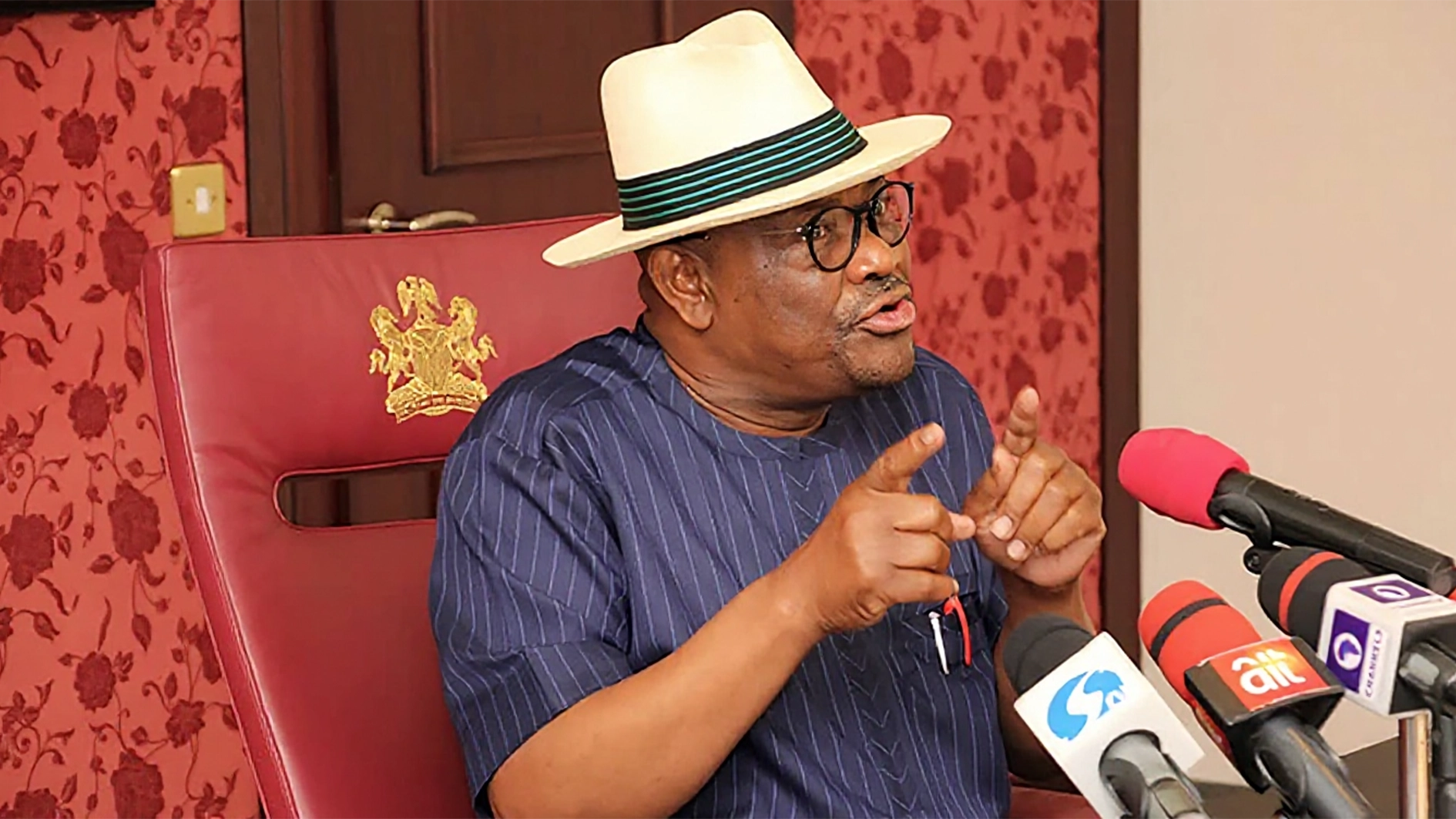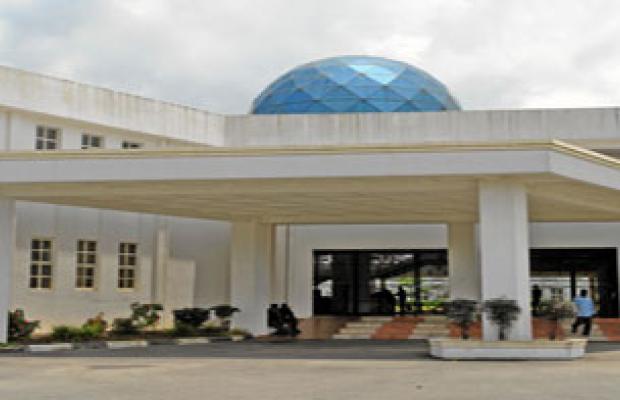
The battle for supremacy between two former allies and governors of Kano State is unsettling the centre of commerce and gateway to northern Nigeria. Gravely affected are real governance and general well-being that are the purpose of power politics, MURTALA ADEWALE reports.
The Supreme Court judgment that affirmed the victory of Governor Abba Kabir Yusuf may have settled the 2023 governorship election in Kano State, but not the old political feud the poll festered between Musa Kwankwaso of the New Nigeria Peoples Party (NNPP) and Abdullahi Ganduje of the All Progressives Congress (APC).
Interestingly, already at the heart of the struggle is the 2027 elections. While Kwankwaso is most likely going to contest the 2027 presidential election against President Bola Tinubu, Ganduje, whos is the National Chairman of the APC, is bent on improving the vote tally he got for Tinubu in the 2023 presidential election, where the APC scored over 600,000 votes to help it defeat PDP and Labour Party.
Prior to the 2023 general elections, similar politics and tug of war over who would dominate Kano politics, also featured prominently during the second term of Ganduje’s administration as governor of Kano State. Ganduje had fallen out with Kwankwaso, his erstwhile political benefactor before the turn of 2019 elections, where the former emerged victorious, albeit with heavy political bruises.
Before they fell apart, the two former allies had been a shining example among politicians, having endured a bond that was devoid of the usual crisis among Nigerian politicians especially, governor/deputy relationships before a crack emerged that widened between them since then.
Before their political differences, Kwankwaso and Ganduje ran a joint ticket for Governor and Deputy, respectively, in Kano State between 1999 to 2003 and 2011 to 2015.
Ganduje remained a loyal ally, and in appreciation, Kwankwaso sanctioned his nomination and candidature for 2015 governorship poll, against stiff rejection among the significant population of the Kwankwasiyya (Kwakwaso’ political movement) eggheads. However, Kwankwaso stood his ground and eventually saw him (Ganduje) through his first tenure.
Unfortunately, a few months into Ganduje’s first tenure in office, the two associates went into trenches as then incumbent governor accused Kwankwaso of overbearing influence on his administration. The escalating bickering soon widened the gulf between the two following a wide range of actions and counter reactions from both sides.
The crisis got to a head when Ganduje, while serving as governor, ordered the removal of Kwankwaso’s name on all legacy projects including schools, bridges and projects constructed during Kwankwaso’s administration.
Furthermore, Ganduje placed embargo on all ongoing and uncompleted capital projects initiated by Kwankwaso while accusing his erstwhile political godfather of running Kano state account to bankruptcy, against his (Ganduje) earlier remarks. Ganduje at the point of assuming office had claimed responsibility for any inadequacy of Kwankwaso’s administration, saying “after all, I was part and parcel of Kwankwaso’s administration”.
The power tussle later worsened, when Ganduje denied Kwankwaso, who was a serving senator representing Kano Central, access to Kano for almost four years, citing security threats to his actions.
The crisis took a reverse turn in 2023 when the Kwankwaso backed NNPP defeated APC and took over the mantle of leadership in Kano government house, with incumbent governor, AbbaYusuf. Ganduje, then sitting governor, failed to deliver Kano to APC at the governorship and presidential levels.
In what looked like payback time, the new administration embarked on massive demolition of property sold by Ganduje to private individuals. Governor Yusuf had accused the past APC government of illegal sales of public property and allocation of the same to friends and cronies.
The demolition of a shopping complex at central Eid prayer ground, Daula hotel and Race-Cross complex worth billions of naira raised dust. Although Kwankwaso insisted the NNPP had no regret over the destruction of the private properties, the state government was compelled to pay compensation to some owners of the property after legal action.
Besides, the NNPP government in the state also instituted several criminal charges against the national chairman of APC, his cabinet and family members who were accused of corruption and mismanagement of public funds.
Governor Yusuf’s sack of five emirs established by Ganduje and reinstatement of Muhammadu Sanusi back to Kano Palace, years after his dethronement by Ganduje rekindled fresh tussle between the two gladiators.
Ganduje’s federal power was made manifest while the royal crisis continued as Governor Yusuf’s action was consistently countered by superior influence that invariably rendered the state authorities weak and unable to take actions.
The governor recently lamented outright rejection of orders issued to the state commissioner of police in Kano. The governor’s lamentation became evident when he ordered the arrest of the 15th Emir of Kano, Aminu Ado Bayero, for allegedly creating tension and threatening peace after his sack. Bayero had returned to Kano with heavy security cover a few days after the state government signed New Emirate Council Repeal Law 2024.
The Assistant Inspector General of Police, Hussain Gumel, the then commissioner in charge of Kano, denied ignoring the orders of the governor, stressing that the “police are interested in protection of lives and property and peace of the state”

But even when the 15th Emir could not return to Kofar Kudu palace, Bayero has remained in Nasarawa mini palace in the last three months with full protection of security agencies. Kano now has two sitting emirs: Sanusi II (16th emir) and Bayero (15th emir) claiming the throne.
Worst is the Judicial (State and Federal) rulings on Kano emir ship tussle and Ganduje’s alleged criminal charges. The recent rulings by the State and Federal High Courts, on the cases suggested where the NNPP and APC influence belong.
Regardless of Governor Yusuf’s lamentation, it is not difficult to understand that power resides in the position Ganduje occupies in the ruling party and by extension in the kitchen cabinet of President Bola Tinubu.
Analysts believe that with the massive control of power and resources at his disposal, Ganduje would not leave any stone unturned to resist all attempts by the NNPP administration to bring him down.
Worried by the development, the national leadership of the NNPP recently accused the APC-led federal government of planning to cause violence on a scale that would lead to the declaration of a state of emergency in the state with the emirship tussle at hand.
The party in a statement released by its National Publicity Secretary, Ladipo Johnson, in June, alleged that since losing the 2023 governorship election in the state, the governing APC has “been using every foul means to come to power in Kano despite the fact that the good people of Kano State rejected them at the polls.”
There are claims that the prevailing power play and other rising developments, if not carefully managed may lead to a state of anarchy and plunge the state into social disorder with the negative impact it is having already in the NNPP government of the state.
A researcher, Ado Ibrahim Kurawa, told The Guardian, called for true federalism where the roles of the state and federal authorities are clearly defined, saying it would reduce external interference in local matters.
“The federal government should stop interfering in state affairs where it does not concern it. For instance, in the case of an emirship where the federal government is manipulating issues to support the deposed chief in Kano. This is too bad because it’s contributed to the security challenge in the state.
“There should be true federalism in the country. The states are allowed to handle their businesses, and what the federal needs to do are done in the true spirit of federalism. In the area of security, there must be coordination since we don’t have state police.
“We are all aware recently, how the governor of Kano State read it very clearly to the public that the police are not cooperating with his administration as chief security of the state simply because of politics. This is not good enough and I hope this should be addressed,” Ado said
In a counter reaction, State Secretary of APC, Zakari Sarina, who disagreed with the position of Governor Yusuf and Ado, insisted no security apparatus would be allowed to be used by the state for wrong action.
He posited that rather than accuse the security operatives, the state government should be held responsible for ignoring orders of the court on the emirship matters. He urged the public to disregard the governor’s complaint on the federal government’s interference in Kano matters.
“It is not correct to say the Federal Government is interfering in the Kano crisis between NNPP and Emir Ado Bayero and other issues in the state. I am not surprised by the allegation because this is the reason why Nigerians do not have confidence in the state governors calling for establishment of state Police.
“Nigerians know that the governors will end up using them to their advantage. Already they are misusing the state owned paramilitary services like Hisbah and local outfits to harass and oppress their opponents. So what do you think would happen if they have state police?
“Now, he (the governor) is complaining, the police did not obey him, but the question is did he (governor) do obey court orders. There are several orders granted by the court that the governor has disregarded. So, he wanted the security to carry out orders against the court that will not happen. So, the public should know it is not a case of any interference,” Sarina noted.






